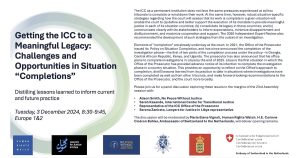Tripoli, 12 August 2014
Over the last three months, the security and political environment in Libya has been deteriorating toward a status of tension with flares of open violence between rival armed groups, the worst since the fall of Muammar Gaddafi. The current situation of turmoil further highlights the weakness of national institutions and severely complicates the process of political change necessary to assert their authority and legitimacy.
While citizens are suffering from the negative consequences generated by the ongoing clashes, the governments that have been in place since the end of the 2011 revolution have struggled to make their voices heard. However, so far they have been unable to put in place the necessary institutions to govern the country, to stop or disarm armed groups, and to develop a full, inclusive political process able to rebuild public confidence and trust in in the institutions of the State.
The delay of the Libya’s Constitution Drafting Assembly in drafting Libya’s new constitution also threatens fundamental processes towards democratic transition, and so does the delay of the Libyan Parliament in establishing the Fact Finding and Reconciliation Commission, an independent body in charge of conducting fact-finding on severe and systematic human rights violations.
As countless other transitional societies have demonstrated, impunity and rewards for violence are too fragile a base upon which to build a stable democracy. Libya must both address the number of past violations in need of investigation, committed during the conflict in 2011 (and subsequent events) and during the 42 years of the Gaddafi regime, and ensure through appropriate reforms that its judicial system abide to the highest international standards of fairness, impartiality and strict adherence to all due process rights. Critically, Libyan authorities should also engage the general public in a meaningful discussion of what Libya’s transitional justice priorities should be.
No Peace Without Justice (NPWJ), which is working on the democratic transition in Libya since 2011, urges that transitional justice will continue to be considered by Libya and by the international community a priority in the country. Without underestimating the serious ongoing security challenges faced by the country, this would help achieve accountability, avoid the creation of a culture of impunity and will pave the way for an effective national reconciliation that will allow Libyan people to take full control of their future.
Libya has a long road ahead to achieve stability and accountability is a critical component of this process. After decades of dictatorship and illegality, we look forward to Libya demonstrating its ability to break with the legacy of illegality and abuses that typified Muammar Gaddafi’s rule with a new respect for the Rule of Law and to meet the promise of justice and redress for the victims and their families. This would be an important signal that Libya is committed to turning a new page and moving to a future based on full respect for the human rights of all.
NPWJ in Libya
NPWJ has been working on the Libyan transition since early 2011 and has been on-the-ground since early October 2011. It has had a permanent presence in Tripoli since March 2012 and has been working to create a network of Libyan actors to engage different sectors of Libyan society on transitional justice. Its work in Libya combines the provision of transitional justice information (both in cooperation with the institutions and in partnerships with civil society), including on outreach and documentation, with research and analysis of public expectations and perceptions. NPWJ is partnering with a wide range of civil society organisations from across the country, including both more established and emerging ones. It aims to help build and reinforce the capacity of Libyan actors, including NGOs, academics, lawyers and media, public authorities and opinion-leaders, to play their role in incorporating accountability, human rights and the rule of law in the democracy transition and post-conflict reconstruction of their country. On the institutional side, NPWJ is working with the Ministry of Justice, and its Higher Judicial Training Institute, in providing training and expertise to the judges and prosecutors who have been charged with the enormous task of dealing with those suspected to have committed or directed atrocities during the conflict, and during the previous regime. NPWJ has also established a trial monitoring program, which is being run in collaboration with the Tripoli Bar Association and aims to promote transparency and accountability within the Libyan judiciary.
For further information on the activities of NPWJ in Libya please contact Giulia Cappellazzi, at gcappellazzi@npwj.org or +218 91 1476934 or Gianluca Eramo, at geramo@npwj.org or +32 (0)2 548 39 25.




